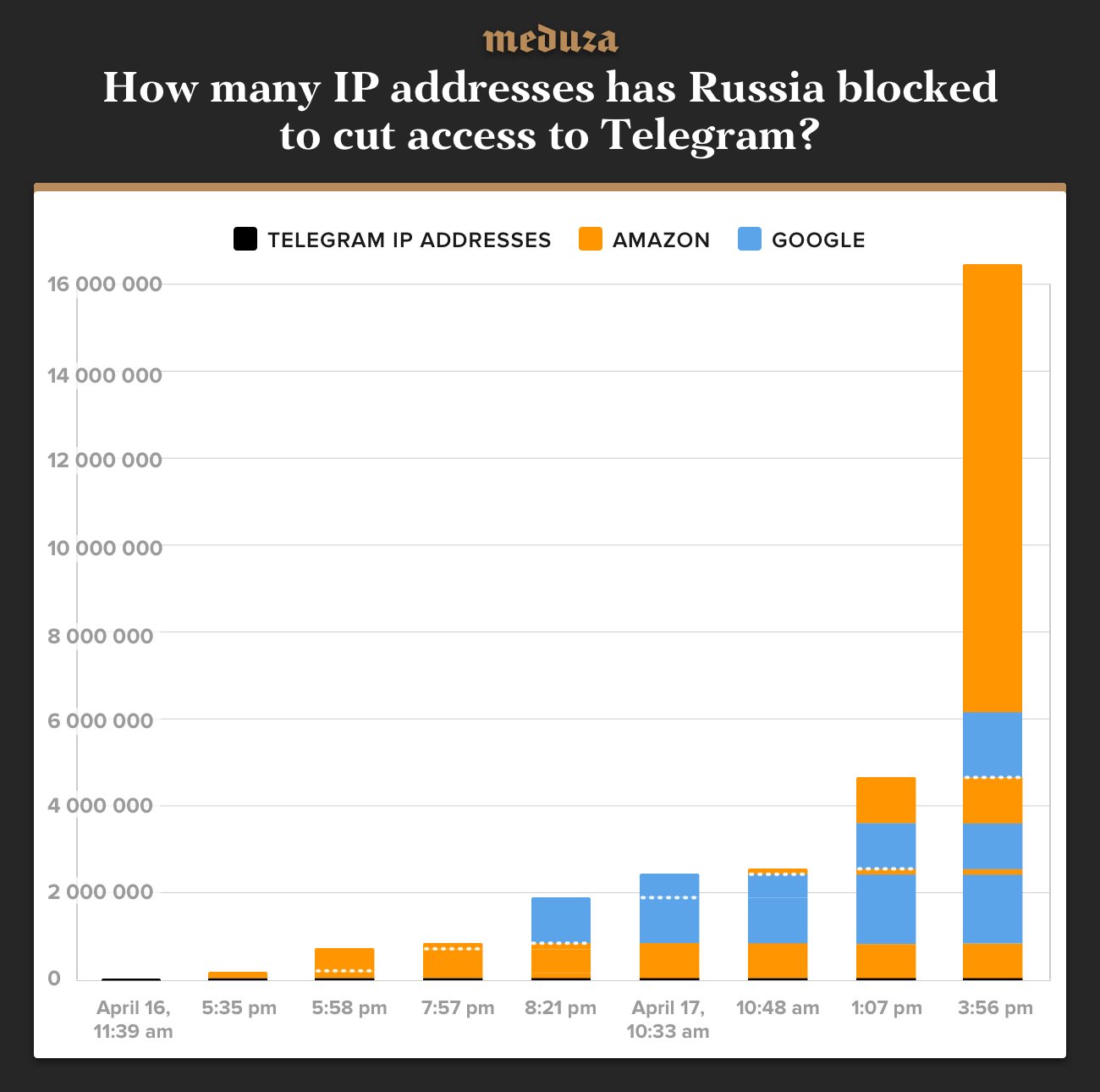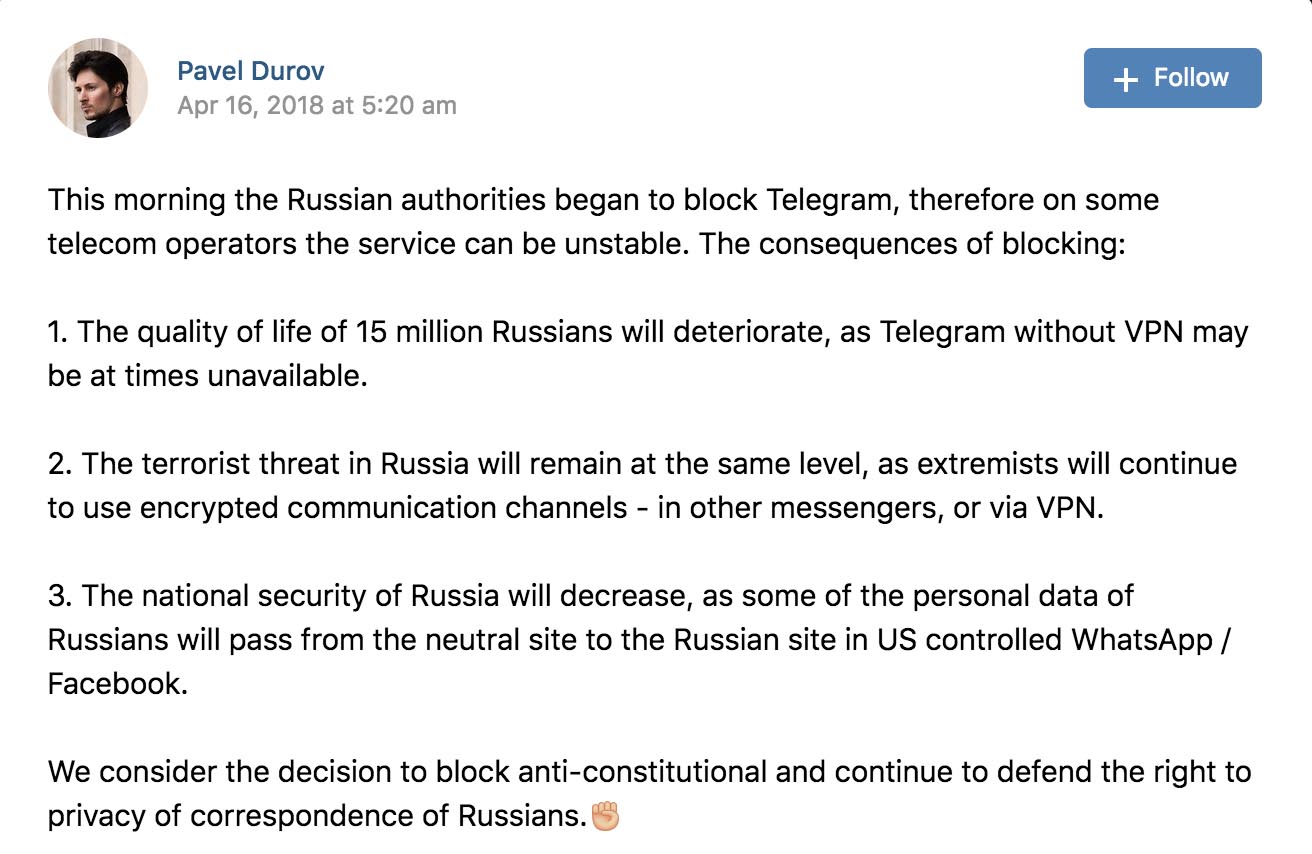Telegram CEO Donates Bitcoins In The Name Of ‘Digital Resistance’
Last Friday, the Russian Federal Service for Supervision of Communications, otherwise known as the Roskomnadzor (RKN), announced that they will be banning the encrypted messaging platform, Telegram. Three days later, they dropped the ax – ordering various internet providers to block […]

Last Friday, the Russian Federal Service for Supervision of Communications, otherwise known as the Roskomnadzor (RKN), announced that they will be banning the encrypted messaging platform, Telegram. Three days later, they dropped the ax – ordering various internet providers to block the Telegram app.
However, in an effort to get rid of the app – which is rather popular amongst crypto enthusiasts and investors – the Russian authority ended up blocking over 20 million Internet Protocol (IP) addresses, most of which belonged to Amazon and Google. Out of those 20 million addresses, only a fraction of those were Telegram IP addresses, as shown in the graph below:

Source: Meduza.io
As a result, there have been reports by Telegram users in Russia about how the app is still fully-functional, despite them not using any Virtual Public Servers (VPN) or other proxy services to circumvent the RKN’s ban.
At the same time, users of other services that had nothing to do with Telegram have suffered due to the ban. Instances of website/app crashes were reported all across Russia, thanks to connectivity problems with Amazon Web Services. Among those applications was Viber, a messaging app that began experiencing interference during in-app calls shortly after the ban.
Some users in Russia are experiencing problems making calls on Viber. These issues seem to come from connectivity problems to Amazon Web Services in Russia. Our team is working around the clock to restore access to users.
— Viber (@Viber) April 16, 2018
Pavel Durov Retaliates With Donations to VPN & Proxy Services
Shortly after the ban, Telegram CEO Pavel Durov released a statement on his official VK account, vowing to uphold digital freedom and progress.

Source: Pavel Durov VK
In his post, Durov acknowledged that despite the 15 million Russian users who will be affected by the ban makes up only 7 percent of the total number of Telegram users and will not have serious long-term effects on the app, it is still important for him to fight on their behalf “for personal reasons.”
He also announced that he will be donating to various VPN and proxy service providers to ensure that Russian Telegram users will still be able to use the app even if the RKN’s firewalls successfully ban the app.
“In the framework of the Digital Resistance – a decentralized movement in defense of digital freedoms and progress – I began to pay bitcoin grants to proxy and vpn administrators. During this year, I will be happy to donate millions of dollars of personal funds for these purposes. I urge everyone to join and participate – setting up proxy / vpn servers or their financing.”
According to the RKN’s terms, they will lift Telegram’s ban only if the latter complies and hands over their encryption keys to the Russian National Security Agency. However, Durov, who once swore that Telegram is “not for sale”, will never agree to this.
“We promised our users 100 [percent] privacy and would rather cease to exist than violate this promise.”





























